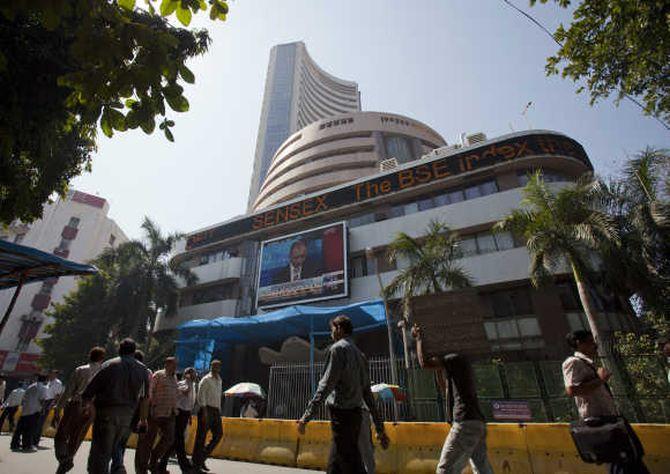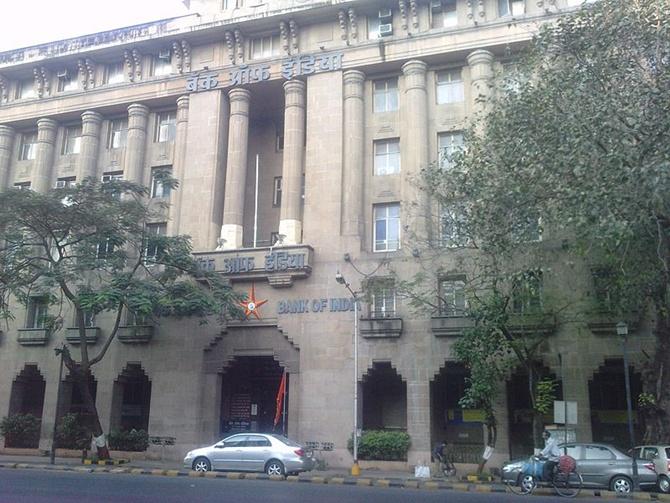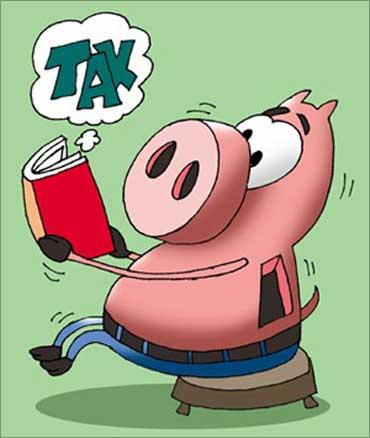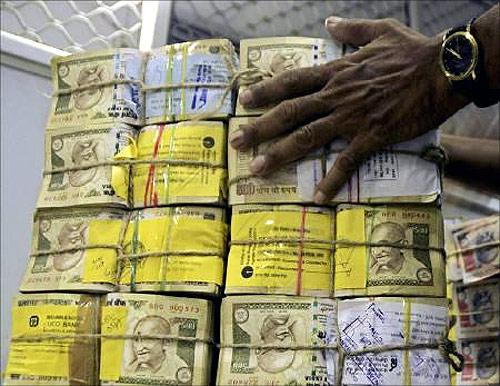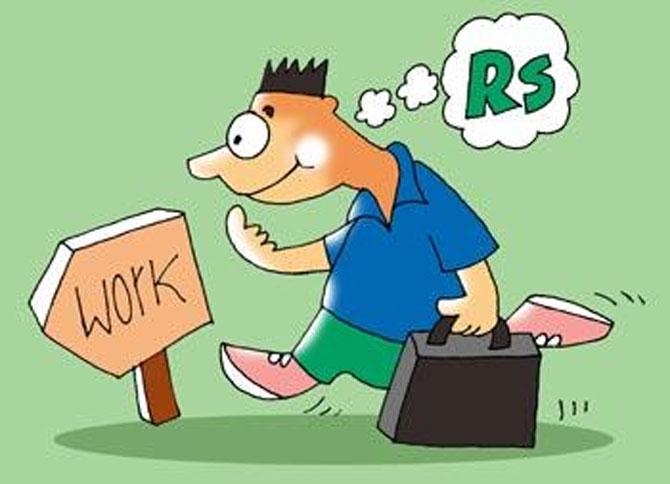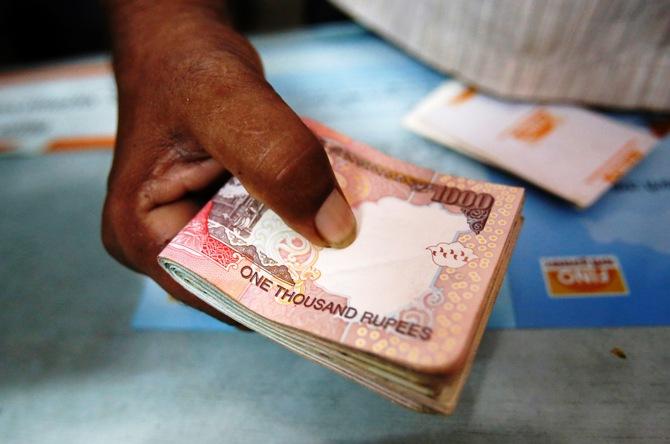 | « Back to article | Print this article |
Golden tips to plan tax investment wisely
The beginning of a new financial year is a good time to revisit your portfolio and take stock of your finances. Early planning helps you earn more returns and prevents you running from pillar to post in the last week of the next March.
Click NEXT to read more..
Golden tips to plan tax investment wisely
The good news is the equity markets and the economy are both looking up.
The former have been positive ahead of the election. Between February 13 (when the market rally started) and April 4, the BSE exchange's Sensitive Index or Sensex has run up 11.5 per cent.
The National Stock Exchange's 50-stock Nifty index has run up a little over 12 per cent in the same time.
Click NEXT to read more...
Golden tips to plan tax investment wisely
At the same time, debt products - fixed deposits (FDs) and debt funds - are giving a high return, as the Reserve Bank of India (RBI) hasn't lowered interest rates due to sticky inflation.
State Bank of India is offering nine per cent for deposits maturing any time between one and 10 years.
Liquid funds have given nine per cent in the past year and short-term funds close to eight per cent. If rates are cut, there will be more capital appreciation in debt funds, as bond prices are inversely proportional to interest rates.
Click NEXT to read more....
Golden tips to plan tax investment wisely
DON'T BUNCH INVESTMENTS FOR THE YEAR-END
•Invest in debt funds or fixed deposits. Lock-in for two to three years
•Use the SIP method to invest in ELSS as it might not be there next year
•If you can, invest Rs 1 lakh in PPF
•Hold on to big-ticket purchases like a house or a car
•If you want to claim HRA benefits, provide the PAN card of house owner if the rent exceeds 8,000, if staying in rental accommodation
•If you want to take advantage of medical insurance for senior citizens/ dependants, ensure you pay the premiums in the first six months
Golden tips to plan tax investment wisely
This year, though, is slightly different. You might want to go slow, as the Union Budget will be announced only in the middle of the financial year, by July or August, after the new government takes over. Also, as the Direct Taxes Code (DTC) might be passed.
Then, should you go ahead with your annual portfolio cleansing exercise or wait till at least the Budget gets over? You might be able to plan your finances better, after the government announcements.
Click NEXT to read more....
Golden tips to plan tax investment wisely
Yet, financial planners feel these events should not affect your portfolio revisit.
Says certified financial planner Kartik Jhaveri, "We can't be sure about DTC even now. The draft guidelines might or not become reality.
Also, you need not wait for the Budget. It might be late by then to plan investments, as you will lose on four to five months of returns. You can always tweak your portfolio post-Budget."
Click NEXT to read more.....
Golden tips to plan tax investment wisely
At best, you could hold on to big purchases, such as a home.
This is in case there are announcements on that side, like a higher loan-to-value (LTV) or special tax benefit for houses bought in FY14-15 and so on. Do not worry about tax planning, as that is a sub-set of financial planning. If the latter is in control, the former will automatically be fine.
Click NEXT to read more....
Golden tips to plan tax investment wisely
Here's how to go about it
First, contingency:
Start with ensuring you have three to six months of cash for expenses kept aside, if there are problems on the job front - the economic situation is still not stable and many sectors are reeling under heavy losses.
You can invest in liquid instruments like FDs and liquid funds for these.
Click NEXT to read more.....
Golden tips to plan tax investment wisely
Many times, we come face to face with an emergency, with very little cash in hand. And, we break investments.
Vivek Rege of VR Wealth Advisors strictly advises against this. "To best prepare yourself for such situations, check your family structure and plan accordingly.
If there are senior citizens at home, you will definitely need to have a medical cover, to avoid a drain on your pocket." Else, keep aside additional cash for any hospitalisation.
Also ensure you have sufficient life insurance if you have dependents - parents, children and so on.
Click NEXT to read more....
Golden tips to plan tax investment wisely
Liabilities
First, take a look at what liabilities you're carrying from last year. If high-cost ones, like credit card loans, these should be retired first - you can be charged as much as 50 per cent interest on the amount due. And, avoid accumulating huge credit card bills if you can't always pay off the entire amount in one go.
Those who revolve credit card payments should make use of bonuses or the lumpsum incomes they earn in March and April to clear their dues, even before directing the amount towards investments. After all, what they save by paying off credit card dues (36-44 per cent) will be much higher than the returns (9-10 per cent) their investments could fetch.
Click NEXT to read more....
Golden tips to plan tax investment wisely
If it is a home loan, you need to evaluate.
These are supposed to be low cost credit and you're advised to hold on for the tax benefits.
But check if you are getting tax benefits for the entire amount going in repaying, if it is a self-occupied property.
"For a loan amount of Rs 20-30 lakh, the annual interest repayment comes to Rs 1.5 lakh or a little more.
Therefore, between a working couple, the amount for tax benefit gets increased to Rs 3 lakh a year," says Rege.
Click NEXT to read more...
Golden tips to plan tax investment wisely
However, given the price of houses in all major cities, a loan of Rs 50 lakh or more is very common. "Say you have a Rs 65-lakh loan; you would pay much higher interest than the tax benefit. In that case, the earlier you prepay the loan, the better," suggests Rege.
He suggests using bonuses and appraisals, which in many cases come in April, to be used to set off such loans.
Again, this decision should be made in April itself (or soon after the bonus comes) because in the month of May, the money can get diverted towards summer holiday. At least, you could part-prepay in April to save on interest cost.
Click NEXT to read more....
Golden tips to plan tax investment wisely
You could go slow with prepayment in case of a let-out property, as the tax benefit on interest repayment for such property is unlimited.
In the initial years, the interest component of the EMI (equated monthly instalment) is very high. Part prepayment in the early years can reduce your interest burden and shrink the tenure considerably.
Click NEXT to read more....
Golden tips to plan tax investment wisely
Planning investments
First, check your current portfolio and remove all investments lagging for the past year. "At this point, equities are doing well, so this is a good time to put money in the markets. If you wait till the year-end for investing for tax reasons, you might lose out on returns," says Jhaveri.
Assuming a remote chance of DTC going through, invest in equity-linked saving schemes (ELSS) at the earliest, he advises.
He also suggests FDs at the earliest, as rates might not stay at this level once RBI decides to cut these. And, this might happen by the end of this calendar year.
Click NEXT to read more...
Golden tips to plan tax investment wisely
Planning your finances at the beginning of the year lowers the burden on your pocket - you can space out your investments every month or quarter.
Stick to safe instruments if your investment horizon is short to medium-term.
If your goal(s) are five to seven years away, opt for investing regularly in an equity mutual fund to achieve it.
Click NEXT to read more....
Golden tips to plan tax investment wisely
This won't be possible if you plan on investing in the last day of the financial year, only for saving on taxes.
Then, you are bound to opt for only tax-saving products like a five-year FD or life insurance policies, without considering wealth creation for goals.
So, even if you save some taxes, you will lose a lot more in terms of return.

